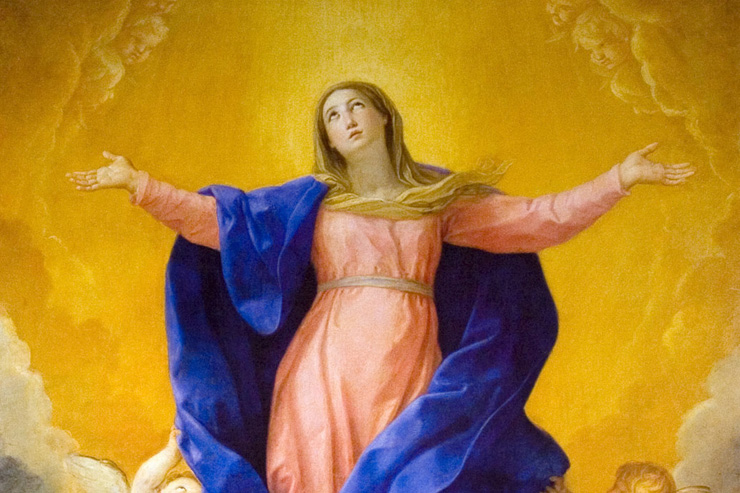In today’s Gospel we see the culmination and the aftermath of Jesus’ Bread of Life discourse. Jesus has presented his teaching on the Eucharist, and the disciples are struggling with believing in it because they don’t understand it. It is the moment of decision.
Today’s First Reading, taken from the Book of Joshua, recalls a decisive moment for the people of God. The Exodus and forty years in the desert are over. They’ve not only entered the Promised Land under Joshua’s leadership and with the Lord’s help; they’ve conquered it. With a long journey behind them where the Lord not only accompanied and guided them, but also worked great signs and wonders, they now had to decide whether they would still serve him or turn back to the gods they’d left behind.
Joshua tells them they can do whatever they want, but he’s already made his decision: he and his household will serve the Lord. Everything the Lord has offered is freely given, just as it is freely accepted. They’re free to simply decide to go back to their old way of life, even though they’d be foolish to do so. The Israelites in the face of all the Lord has done for them acknowledge they’d be crazy to turn away from him now. However, as the Book of Judges reminds us, they soon did turn away from the Lord after Joshua passed away.
In today’s Second Reading St. Paul reminds us that service implies being subordinate to another, and subordination is not always a bad thing. That last statement may rankle us, who pride ourselves on our independence and self-reliance, but Our Lord teaches this by example. When Paul used the example of the husband being the head of the household, he points to the relationship between Our Lord and the Church to show how this should be lived. To use a more contemporary expression, there’s no daylight between Christ and His Church, just as there should not be between husband and wife. Everyone should see them as one thing, no longer two, inseparable. Being subordinate to someone bears a greater responsibility on the part of the person to whom you’re being subordinate. Our Lord laid down his life for our wellbeing. He may call the shots, but he cherishes us, just as a husband should cherish his wife.
In today’s Gospel we see the culmination and the aftermath of Jesus’ Bread of Life discourse. His teaching about the Eucharist presents the moment of decision for those who follow him, because it requires faith, not just understanding. As a result, “many” disciples of Jesus return to their former way of life. Our Lord even poses the question to the Twelve, and Peter’s response holds a lesson we should all consider in our own life of faith: belief is supported by grace, and it is through belief that we understand some of the deepest mysteries of God.
If we try to start with reasons, as we’ve seen over the last few Sundays, some truths of God will remain out of reach for us and we’ll fall back on the certainties we know, as many of the disciples did in today’s Gospel. We shouldn’t be shy about asking Our Lord to help us in our unbelief. As Peter describes it in his response to Our Lord, believing leads to conviction. We can live a life of faith without understanding it completely and, somehow, it all fits together. The Twelve, except Judas, are building on an experience of God and his mystery that they’ve had ever since they started following Jesus, which, in turn, was built on their understanding of God before Jesus’ coming that had been lived and passed along throughout salvation history.
Today’s readings provide a great way to take spiritual inventory of how we our living our lives when faced with adversity and difficulty in matters of faith. The teaching on the Eucharist was too much, and many disciples abandoned the life Jesus had taught them. Their faith when challenged was anemic, and Our Lord already knew who had welcomed grace into their hearts and who hadn’t. Those who did persevere in faith and in living as Christ taught were blessed in abundance. Today’s individualism often tempts us to try and work out spiritual matters on our own, a la carte, on our terms, and without anyone else’s “interference,” but the Church has been established and sanctified by Our Lord so that believers can help believers. Let’s examine our life today and see whether we’ve drifted from what Our Lord has taught, or doubted that his teaching now continues through his Church. Often this results from a teaching difficult to accept. Like Peter in today’s Gospel, let’s believe first, in order to then be convinced through grace that Jesus is the Holy One of God.
Readings: Joshua 24:1–2a, 15–17, 18b; Psalm 34:2–3, 16–21; Ephesians 5:21–32; John 6:60–69. See also 21st Sunday in Ordinary Time, Cycle B.

